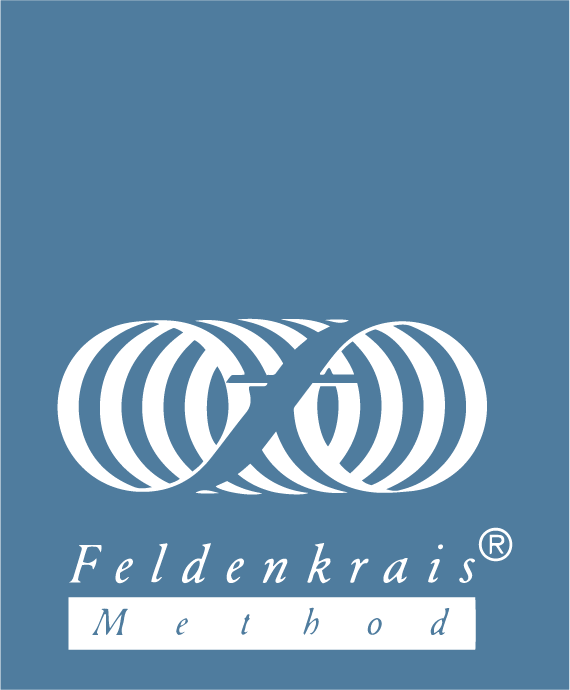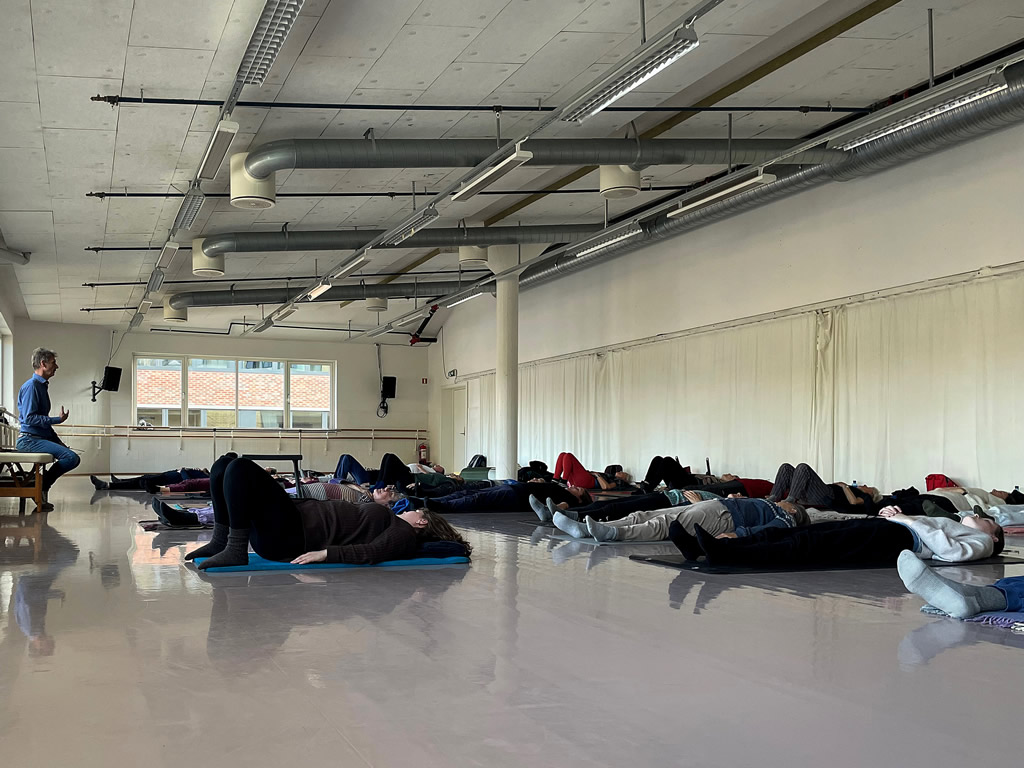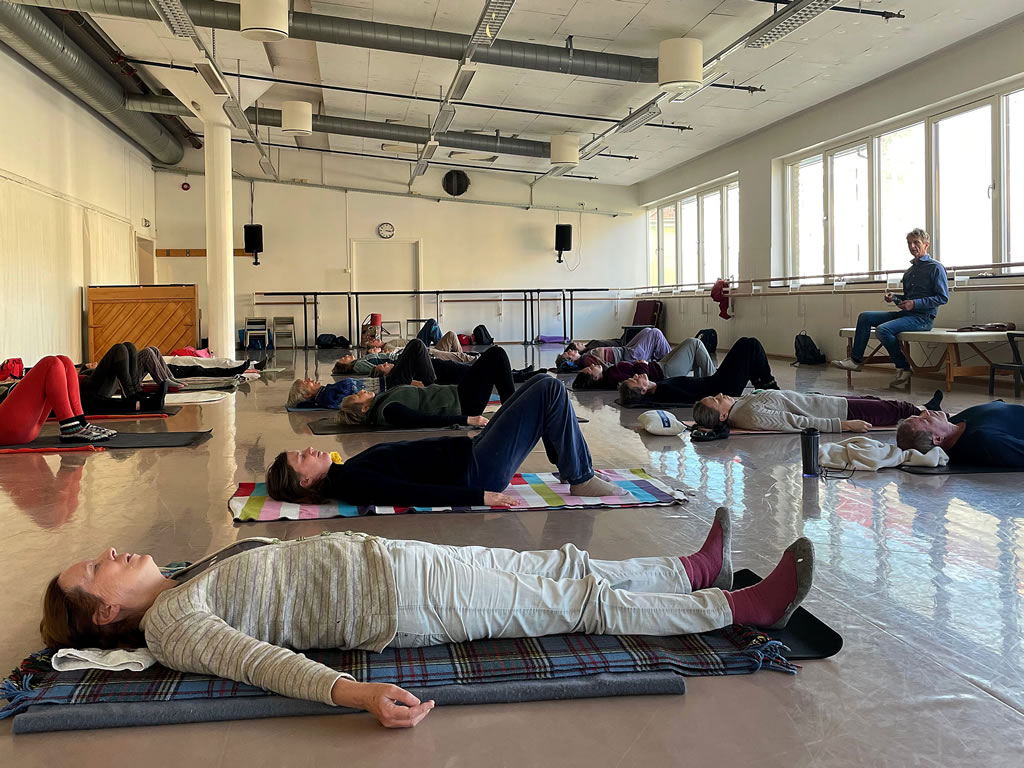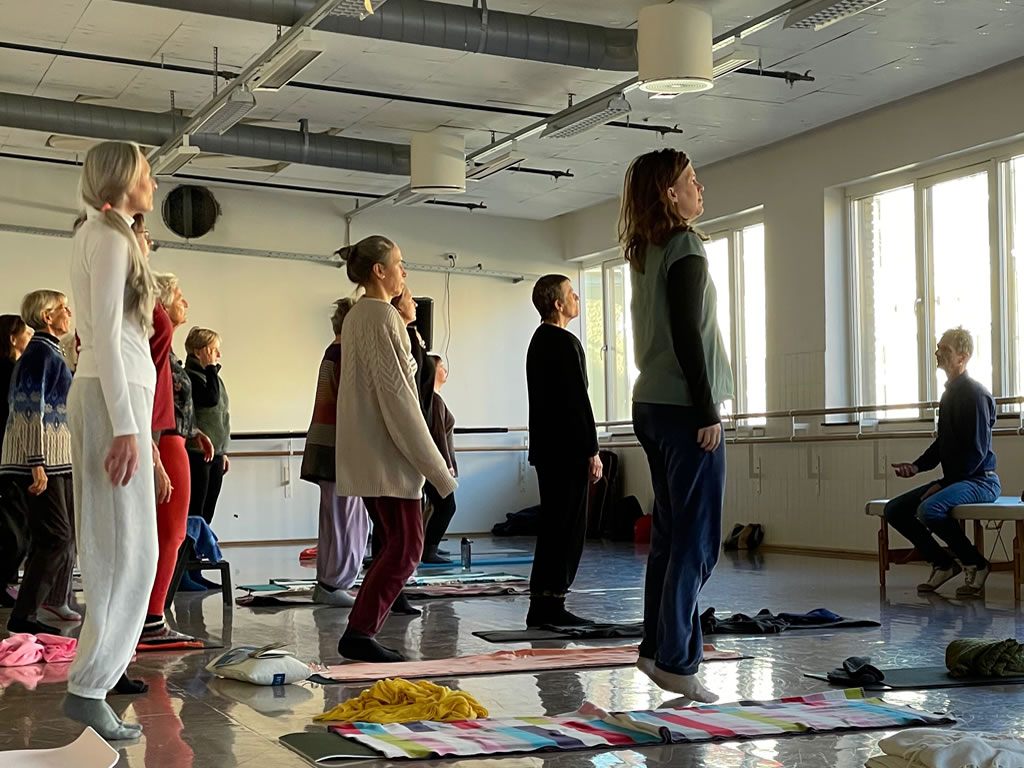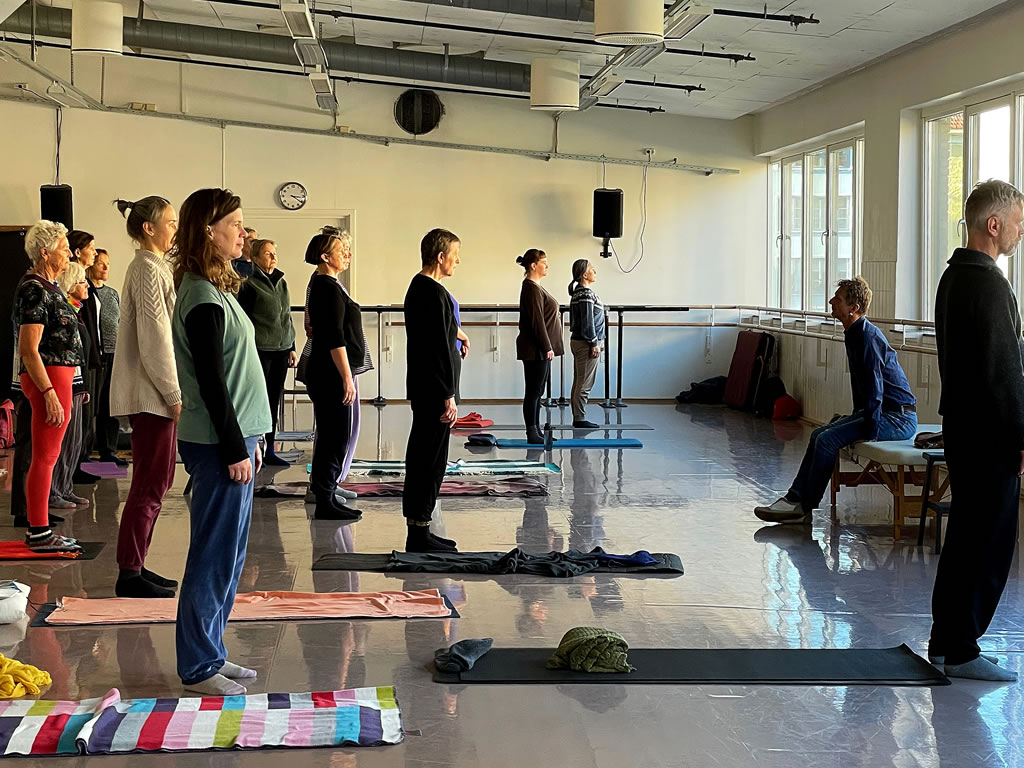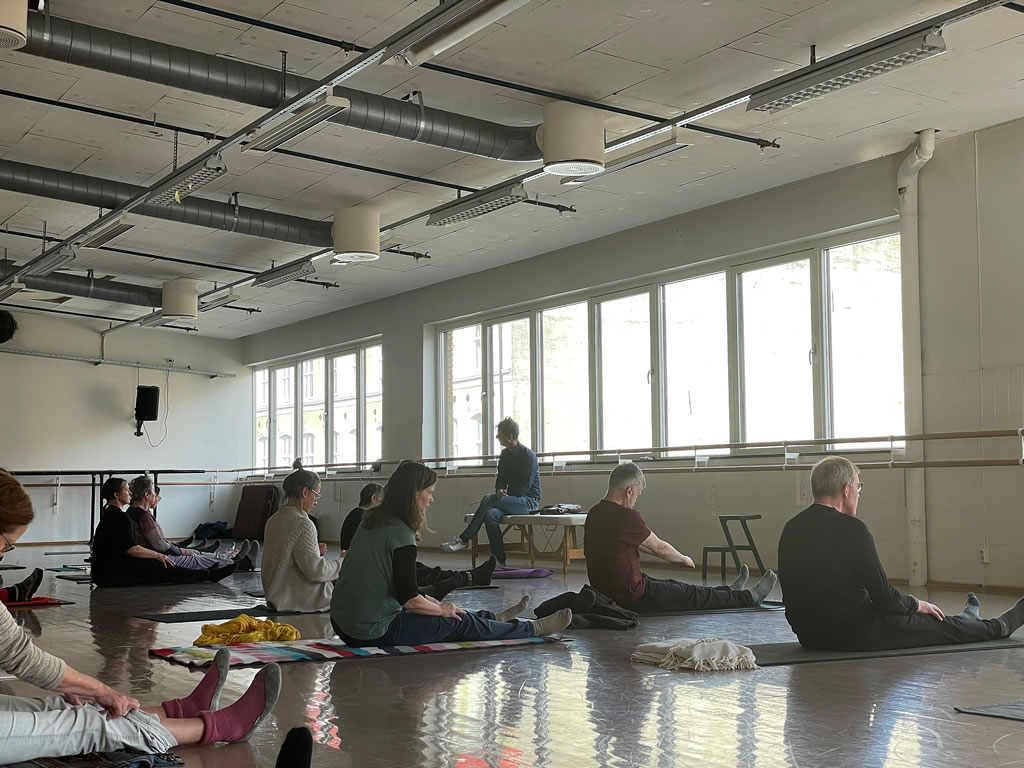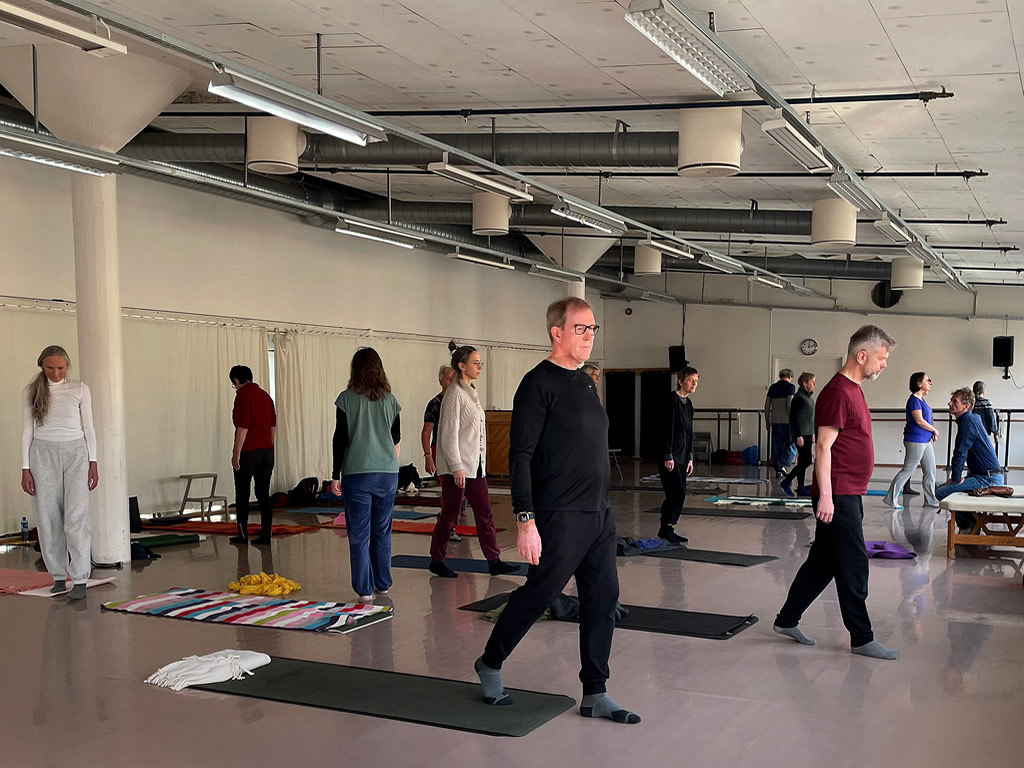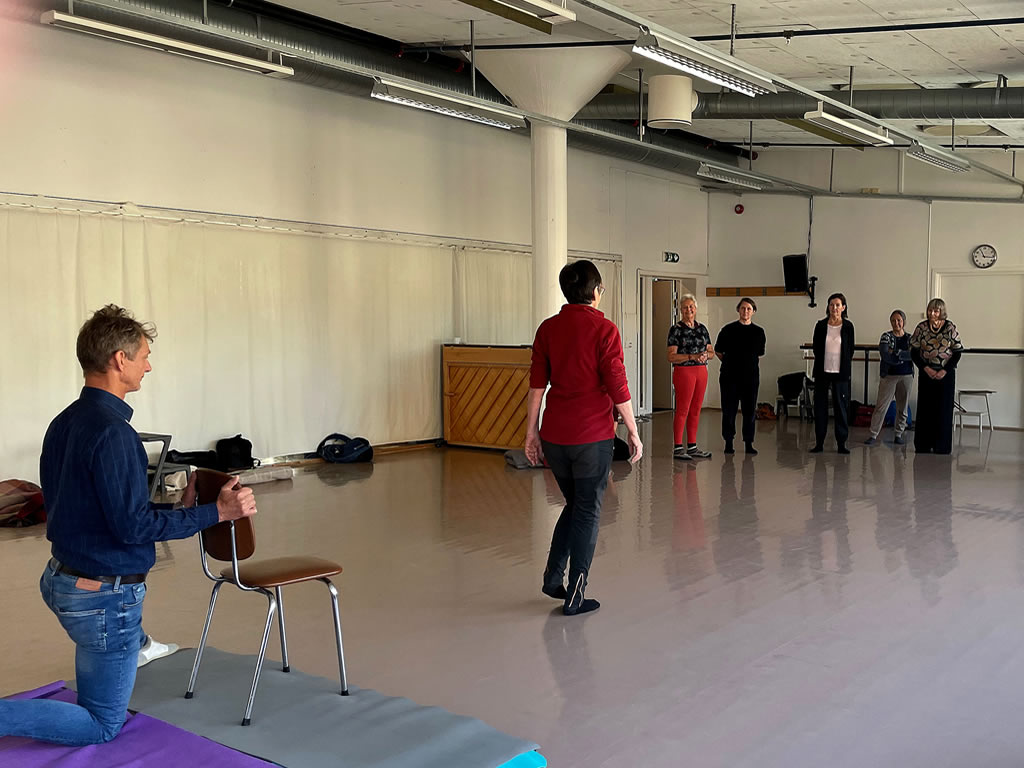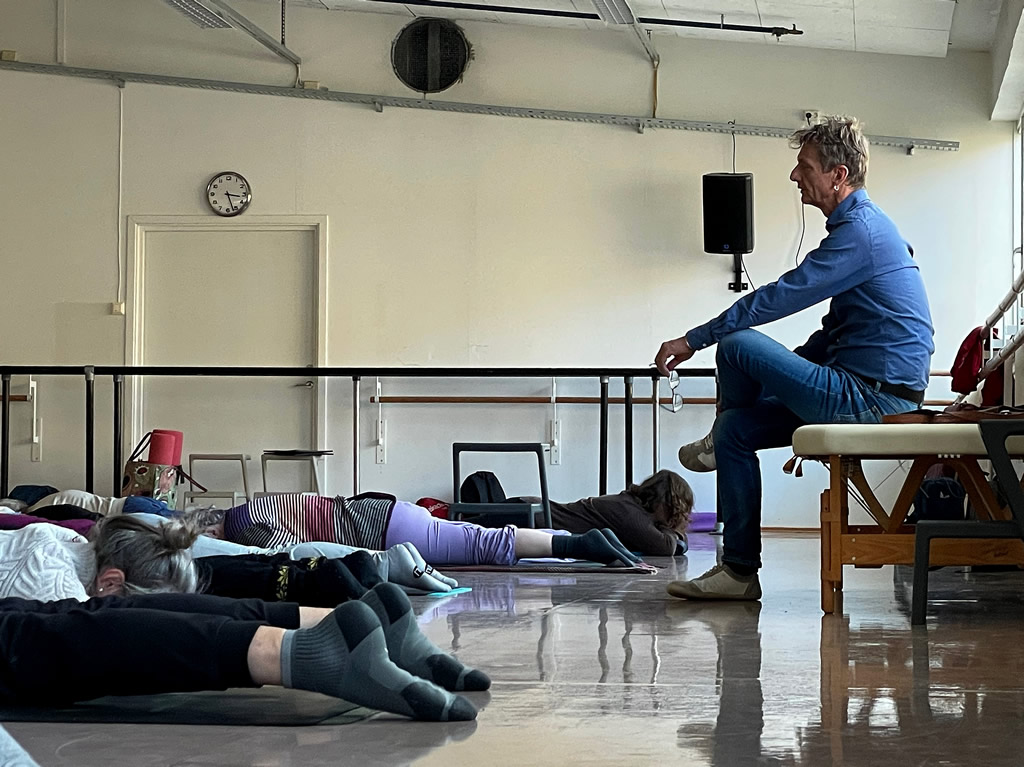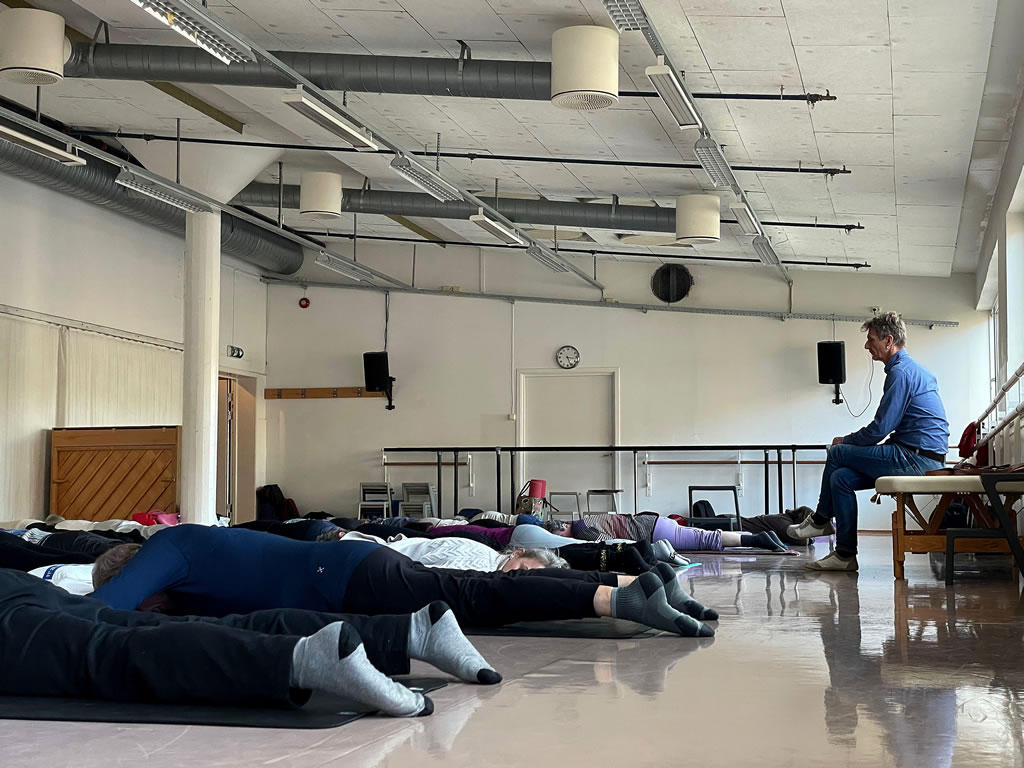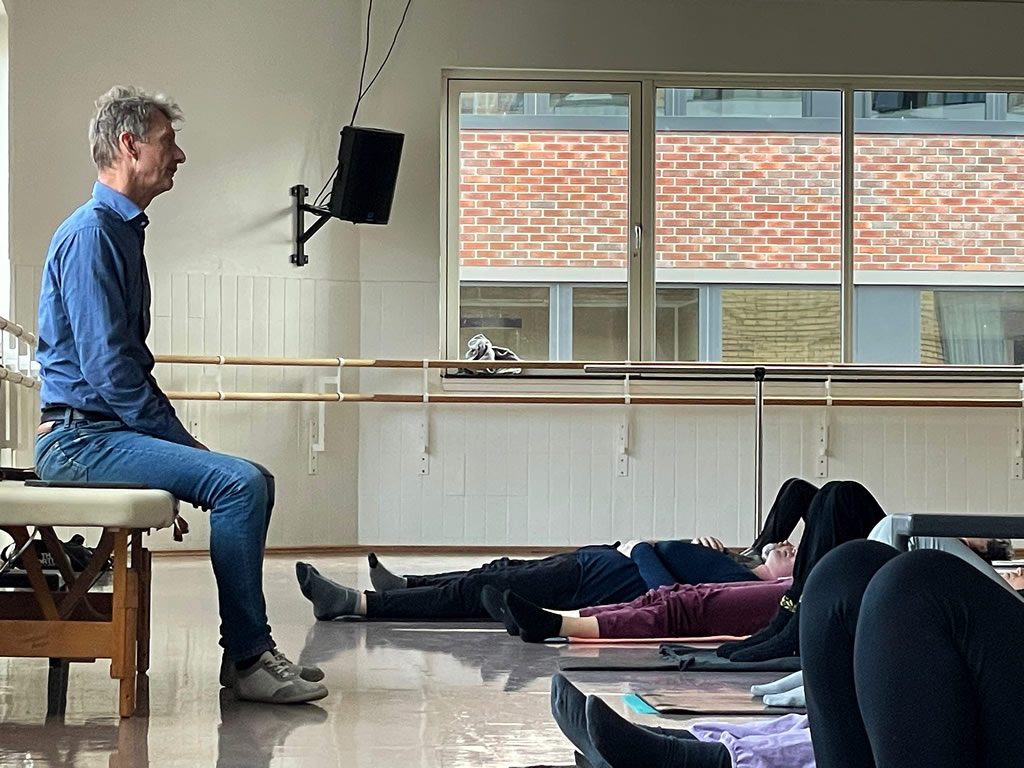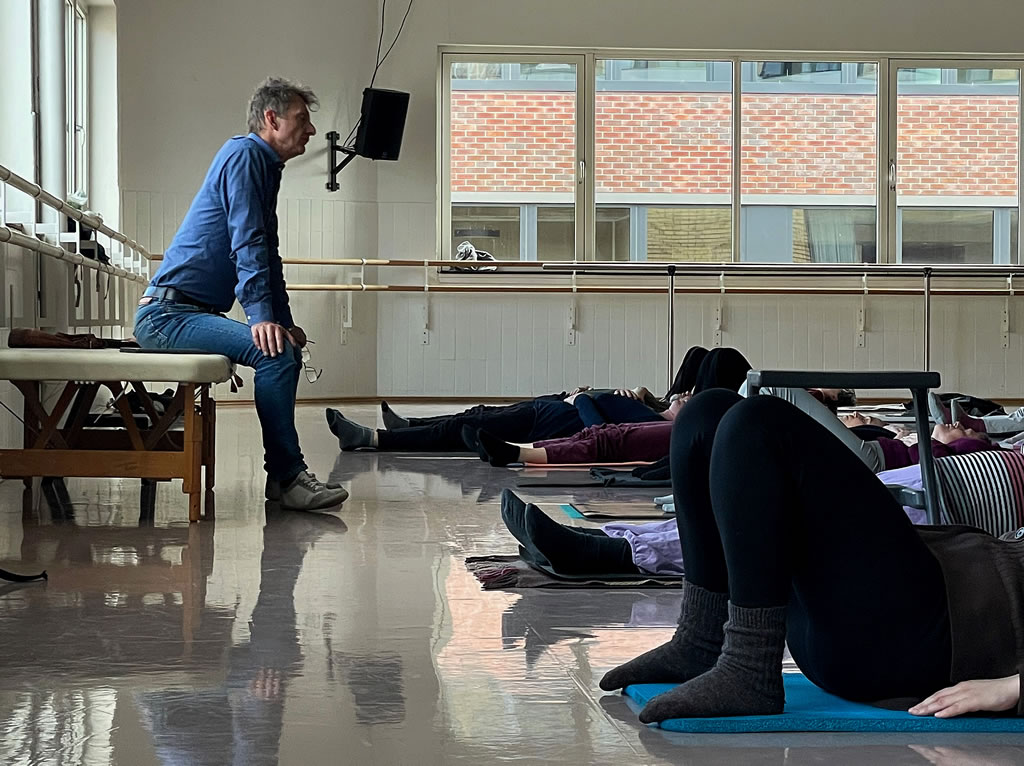Movement, Play and Human Development
A Feldenkrais method course with Thomas Farnbacher
This course is an excellent opportunity to discover new movement possibilities and enrich your movement repertoire, increase body awareness, coordination, balance and sense of self.
Praktisk informasjon
Tid og dato: Lørdag og søndag16 og 17. mars 2024 kl 09.30 – 16.
Lunch mellom kl 12 og 13.
Sted: Rom for Dans
Marstrandgata 8, 0566 Oslo
(Inngang: Stockholmgata)
Pris:
Full pris: 3400 kr.
Rabatt for studenter, uføre, pensjonister: 2600 kr.
Rabatt for tidlig påmelding før 1. februar: 2600 kr.
Påmelding.
Du melder deg på via skjemaet på denne siden.
During the first years of life, we acquire a broad range of new movement skills and abilities. This is a period of enormous learning and development in a child’s life. Movement is also a part of all aspects of life: communication, relationships, emotion, needs, play, thinking, and also conflict.
As we grow older and move less or in more restricted, less playful and regimented ways, many lose some of our basic movement skills, become stiffer, more restricted, less playful and even experience less bodily and emotional freedom. Physical and emotional trauma can also greatly reduce our movement capacity and our embodied sense of self.
In this Feldenkrais method course, we will explore movement from the perspective of the developmental stages of the first years. Our approach to learning is similar to the playful, exploratory way babies and children develop their skills: without competition, in a non-judgmental way. They are not exhausting themselves pursuing a goal but instead are filled with curiosity and joy as they make new discoveries
We will explore, learn, and relearn several of the most important movement skills babies and toddlers develop in the first years. In this course we will focus in particular on movements related to rolling and rotational movements as well as the orientation of the head in space, on top of the neck and spine. Rolling and orientation of the head represents important stages in a child’s development and are also crucial for adults in most activities, for posture, walking, sports.
This is relevant for adults in several ways and aims to improve:
- Coordination of movement and posture
- Balance and orientation in space
- Strength and coordination of the core muscles of the body
- A sense of internal freedom and safety
- Vitality and relaxation
- Resilience and adaptability
- Ease of walking as well as athletic movement, running, etc.
Bilder fra et tidligere kurs i Feldenkraismetoden med Thomas Farnbacher:
Learn through playful movement exploration
For adults, this workshop is an excellent opportunity to discover new movement possibilities and enrich your movement repertoire, body awareness, and sense of self. This can also help you Increase your appreciation of children’s play. This is important, especially in today’s safety-oriented techno society, to create and safeguard the conditions for play to exist and flourish.
This workshop is for:
- Anyone interested in more ease of movement, with less struggle and discomfort.
- Anyone interested in self-growth and development through movement.
- Movement teachers and bodyworkers, Yoga teachers, Feldenkrais teachers, physiotherapists, etc.
- Professionals working with children at kindergarten and school.
- Dancers, athletes, actors, musicians.
- Coaches, psychotherapists, trauma therapists.
About Thomas Farnbacher
Thomas directs FELDENKRAIS® trainings, leads post graduates seminars, and public workshops, and works as a practitioner for individual lessons (Functional Integration) including for special needs children. His professional background is in physical therapy, working with special needs children, martial arts, dance, and massage.
In the fields of somatics, salutogenesis and body-oriented psychotherapy, “Educating the Educator” became his most inspired occupation. The most satisfying for him is to see people thriving and becoming more and more embodied-being more and more of their own selves.
